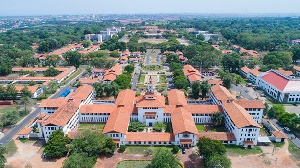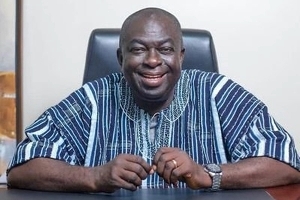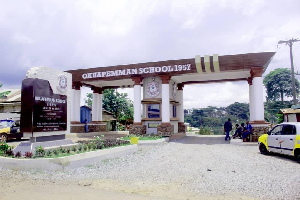Opinions of Friday, 27 April 2018
Columnist: Daniel Asamoah
Making tertiary education free: a priority of all university students
*Archimedes writes*
Every young person is made to understand that, education is a key to success. In 1962, Ghana's first president, *Osagyefo Dr. Kwame Nkrumah* introduced free and compulsory primary education in the country, stressing the need for everyone to be educated.
Today it has been a point of reference to many policy makers in the educational sector and enlighten people on the need to be educated
Education in Ghana was mainly informal and based on apprenticeship before the arrival of the Europeans settlers who built a formal education system addressed to the elites.
The education Act of 1987, followed by the constitution of 1992, gave a new impulse to educational policies in the country. In 2011, the primary school net enrollment rate was 84% described by UNICEF as far ahead of the sub-saharan average. In its 2013-14 report, the world Economic Forum ranked Ghana 46th out of 148 countries for education system quality. In 2010, Ghana's literacy rate was 71.5%, with a notable gap between men(78.36) and women(63.36). The Guardian Newspaper disclosed in April 2015 that 90% of children in Ghana were enrolled in school, ahead of countries like Pakistan and Nigeria at 72% and 64% respectively.
In 1961, the education Act introduced the principle of free and compulsory primary education and KNUST was established. Tertiary education in Ghana has been notably growing during the last twenty years, both in terms of enrollment and infrastructures. Notable universities in Ghana are 55(6 public and 49 private institutions) off an academic education, from bachelor to Phd. Students are normally admitted based on their results from W. A. S. S. C. E. (West African Senior School Certificate Examination).
Polytechnics(10 institutions) offer vocational education. They propose 3 years curriculum leading to a Higher National Diploma(HND). Ghana also possesses many "colleges of education", public or private. They are usually specialized in one field of study. Example College of Agriculture, Nursing Training etc.
My main focus in this article is to talk about whether Ghana can do free tertiary education with quality tuition. Public universities have no tuition fee but usually demand payment for other charges; registration, technology fee, examination fee, academic facility, user fee, medical service and so on. Education is a key to success as I indicated earlier but comes with payment. If a country wants to develop, it human resources has be educated.
Now we have access to free education from primary up to senior high school (SHS). What if we bring free tertiary education excluding all charges that is making it absolutely free? It seems difficult to achieve but with perseverance and different mindset we can achieve it.
Others are saying it is feasible others are saying is not. I personally think it can be done but I don't know what you think about it. Countries in Europe such as Norway, Finland and Slovenia, provides free university education for all student. They are not different from us but what they have done is perseverance and change of attitude.
In Ghana just last year 30% of our annual income was spent on corruption which is very pathetic. I am not been political here but when the issue of making SHS free there was a lot comments saying that free *SHS* is not feasible but as if stands now we are having free *SHS* in existence though it is not what it was expected or it is facing challenges. We need to change our mind and move the nation forward. I also think literacy can reduce if we adopt free education from primary to university of which there will be equity in education in this country.
The government should also provide employment in the country when student graduate from their various tertiary institutions so as to make use of our human resources. The quality of our education should also improve in the form of infrastructures and also improving on the nunber of universities in the country.
*#ARISE GHANA YOUTH FOR YOUR COUNTRY#*













